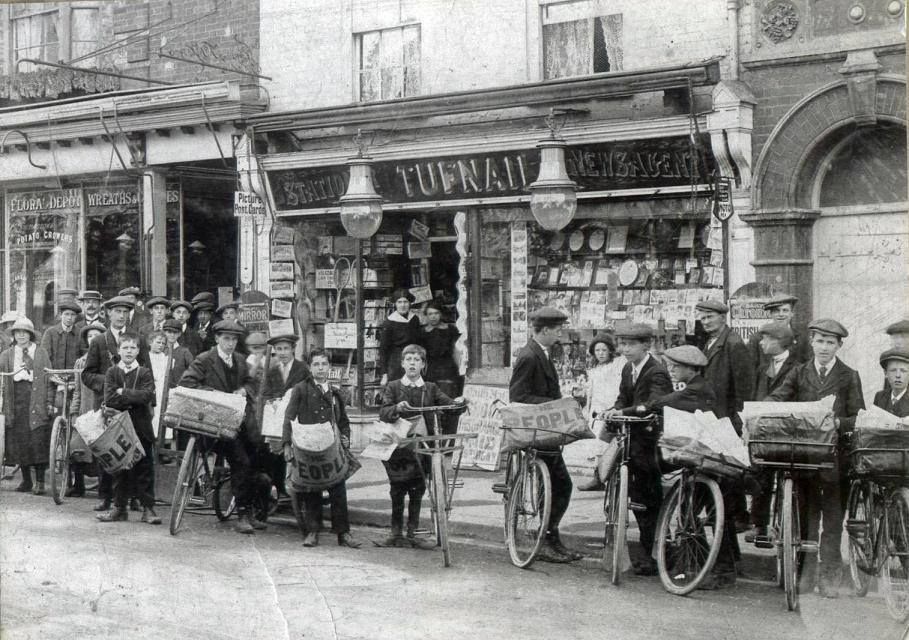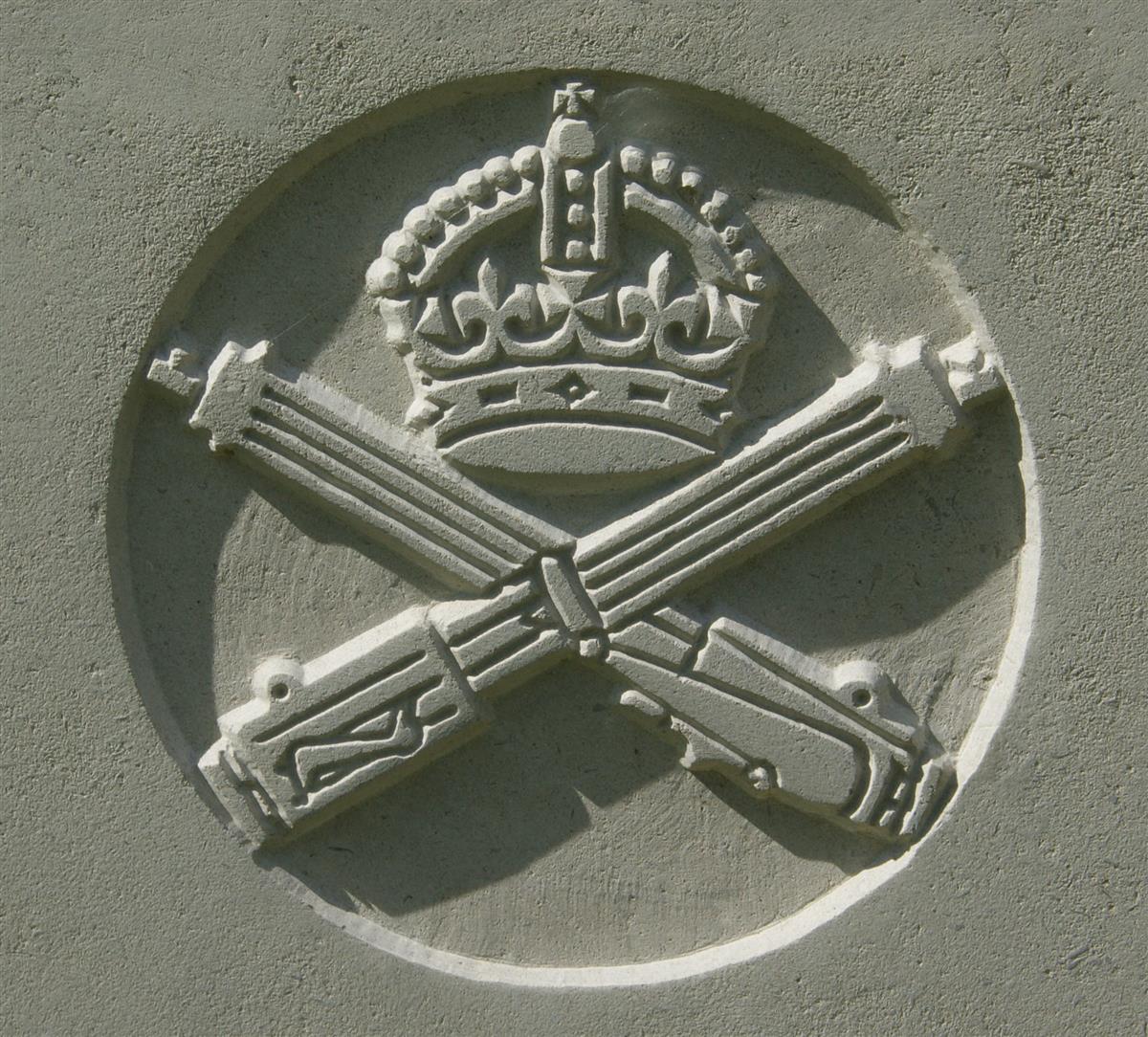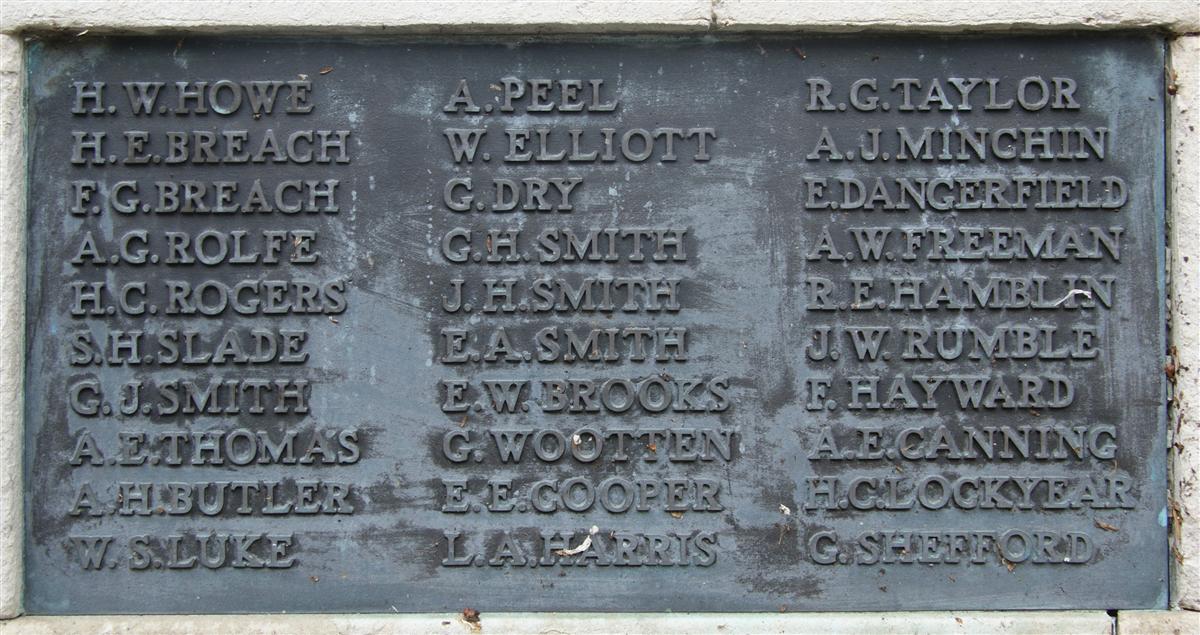William Elliott
Private 29766 William Elliot, Machine Gun Corps
William’s antecedents are difficult to unravel, his parents (William Elliott and Alice née Paddick) appear to have avoided proper registration of any of their children’s births. Births were supposedly registered with both the father’s surname and the mother’s maiden name. This usually makes the identification of family groups fairly straightforward, even for a relatively common name like Elliott. However, no Elliott/Paddick births are registered in the 30 years following William and Alice’s marriage in 1889. There are, however, registrations matching each of their six children with the mother’s maiden name recorded as Bennett or Banica – very odd!
Further confusion arises from a clear conflict between the date of William’s birth in Red Cross records (21 May 1892) and the registration of William Henry (Bennett) Elliott in the second quarter of 1889. The birth of another William (no mother’s name) Elliott was registered in the fourth quarter of the same year, sadly this child died after only a day, he was buried on 9 October 1889.
William’s age is given in censuses as 1 in 1891, 11 in 1901 and 22 in 1911 – all fairly consistent with his birth in 1889. Yet his burial record appears to confirm the 1892 date since it gives his age at death as 27 years old.
His siblings (as per 1911 census) were John (registered birth 1895 - mother’s maiden name Bennett), Alice (1898 - Banica), Edward (1900 - Bennett), Frank (Francis 1903 - Bennett) and Ellen (Helen 1907 - Bennett).
To add to the confusion there were further Bennett/Elliott children born in Newbury during this period - Frederick John (1892-93), Edward George (1893-94), Arthur Sidney (b1896) and Annie Daisy (b1898). The last two were the children of Edward Elliott and his wife Ada Jane née Bennett. The 1911 census asked for numbers of deceased children – but neither William/Alice or Ada Jane (by this date widowed and remarried) declared any dead offspring, just the living.
 Tufnail's paper boys pictured in c1905, perhaps William is one of them? |
The survival of local school records is patchy, there is only one William Elliott in those that have been deposited in the Berkshire Record Office. This William was born 28 May 1889, but his father was recorded as Thomas from Mayor’s Lane – who does not appear in any other record! It seems likely that this was William, if so, he was schooled at West Street Infants and St Nicolas (National) School until he left on 24 April 1903 to work as a Gordon Boy.
By 1911 he was working as a newsagent’s assistant, almost certainly for well-known Newbury character, Jimmy Tufnail, who had a finger in many local enterprises, including Tufnail’s Newsagents in Bartholomew Street (pic) (the staff from this shop sent a wreath to William’s funeral).
On 12 November 1915 William attested into the Royal Berkshire Regiment, describing his occupation as ‘bookseller’. A big recruitment effort was made in late 1915 in a last-ditch attempt to stave off the need for conscription, one of the enticements was that volunteers could choose the regiment they served with, future conscripts would have no such choice. He joined through the Derby or Group Scheme, which allowed men to attest for future service as the need arose. Unsurprisingly it was not long before he was called to serve; he was called up on 10 February 1916 and began his service two days later. He was allocated to the regiment’s 9th Battalion for training.

The regimental badge of the Machine Gun Corps, as used on CWGC headstones. |
Even though he elected to serve in the local regiment William was transferred to another unit before his training was complete – he went to France as a private in the Machine Gun Corps. According to his obituary the transfer took place two years after he enlisted, if so, he spent a long time in training before being sent to the front.
His obituary also records that he was wounded on two occasions.
On 21 March 1918 William was captured by the Germans. This was the opening day of the Kaiserlacht or German Spring Offensive; German forces overwhelmed the British defences along a wide front, in particular the southernmost section of the British front where Fifth Army was thinly spread along a section of front recently taken over from the French. A great many soldiers were captured on that and subsequent days as the Germans advanced up to thirty miles beyond their starting point.
According to German POW records William was serving with 53 MGC, presumably 53 Company, which became A Company in 18th Brigade MGC in February 1918 (presumably William still had the 53 on his uniform when he was found).
The 18th Brigade MGC provided the heavy machine gun support to 18th Division, which was moved from Flanders to the Somme in February 1918 as a reinforcement of Fifth Army as it took on the extra stretch of line. Everyone knew the German’s would attack soon, and the Fifth Army front was the obvious target. All the British could do was prepare as best they could to face the onslaught (not helped by the political decision to keep reinforcements back in the UK).
The 18th Division was holding 2,000 yards of line from south of Vendeuil north to just west of Alaincourt. They were overrun along with the rest of Fifth Army’s front, the extent of the damage can be seen from the diary of the 18th Brigade MGC :
Losses of Machine Guns
During operations from 21st to 26th March 1918.
MGs captured by the enemy – 28 (Includes 6 guns surrounded by enemy and nothing further known. 8 Guns and Teams ‘Missing’. 4 Guns probably destroyed by shellfire before capture. 5 rendered useless before capture. Nothing known of 5.)
Destroyed by enemy fire – 11.
The brigade had lost 39 of its 48 guns!
A Company was with the 53rd Infantry Brigade on the northern sector of the divisional front when the Germans attacked at dawn on 21 March, much assisted by a morning mist. Also from the brigade war diary:
Owing to the very think mist he was able to work right up to our gun positions and there is little doubt that the 12 forward guns of A Company were very quickly destroyed or captured.
William was severely wounded and was taken from the field near Moy-de-l’Aisne to a German military hospital facility. In time his capture was reported to the Red Cross and news would have reached his family that he was still alive. His wounds were so severe that the Germans decided to send him home – there was no benefit in expending scares resources feeding and caring for an enemy soldier who was unlikely to play any further part in the war. Such exchanges went on throughout the war with wounded and sick men being repatriated in both directions. So, after five months as a POW, William returned to the UK. He spent the rest of his life at a military hospital near Grantham, Lincolnshire. The hospital was in the grounds of Belton Park (now a National Trust property), which also housed the training facility for the Machine Gun Corps.
On 18 October 1919 William finally succumbed to his wounds; his body was returned to Newbury for burial:
Newbury Weekly News, 30 October 1919 – Soldier’s Funeral
The funeral of the late Pte William Elliott, of Union Court, took place on Friday at the Borough Cemetery. In 1915 the deceased joined the Royal Berks Regiment, some two years later was transferred to the Machine Gun Corps, and served in France, where he was twice wounded, and eventually taken prisoner. He remained in Germany some five months, and on returning to England in a very bad state of health, was detained in a military hospital at Grantham, where he passed away on Saturday, October 18. The body was conveyed by train to his home in Newbury, and the funeral took place on Friday the Rev E Clayton, of St Nicolas’ Church, officiating.
 William's name on Newbury War Memorial. (upper centre) |
The mourners were Mr and Mrs Elliott, father and mother, Frank, Joe and Jack (brothers) and sister Ellen. Miss Rosier, his fiancée, Miss Tucker, Mr B Pearce, Mr F Crosswell, Mrs J Elliott, and Mrs Rosier, and several of his old friends were in attendance at the graveside. Floral tokens were sent by father, mother and family, Miss Rosier, Did, Ma, Dad, and Nellie, Mr J Tufnail, the staff at Mr Tufnail’s, nursing staff and comrades at Grantham, and the neighbours. The coffin was covered with a Union Jack. The undertakers were Messrs Hart and Son, Northcroft Lane.
Locally he is remembered on Tablet 10 of the Newbury Town War Memorial and on his grave in Shaw Cemetery.

Find a memorial :
| Died this day: | |
| 02 March 1943 | |
| K F Bartholomew | |
| Newbury |

Like this site? Show your appreciation through a donation to a great charity.